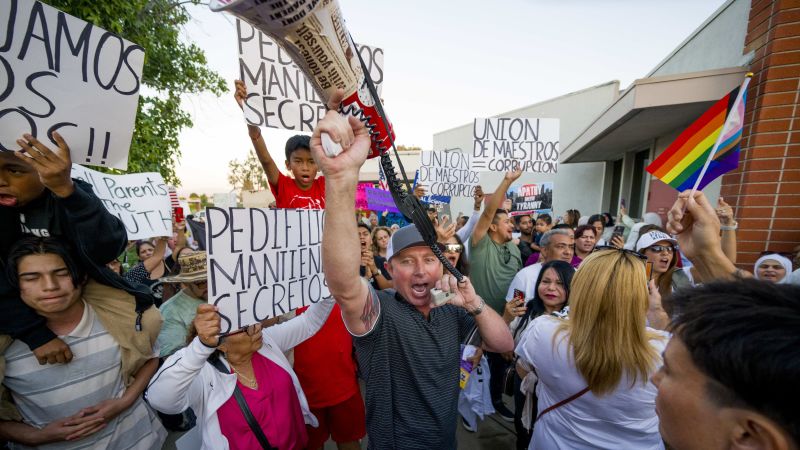The culture wars that have been raging in school districts across the United States have made their way to a Southern California district, where two board members were recalled for their support of controversial policies associated with the “parental rights” movement. These policies sparked heated debates within the community and ultimately led to the removal of the board members through a recall vote. The recall is indicative of the deep divisions and tensions that can arise in a community when contentious issues related to education and culture are at stake.
The recall of the two board members reflects the broader national trend of culture wars playing out in school boards, with debates surrounding issues such as critical race theory, LGBTQ+ rights, and diversity initiatives sparking intense conflicts. These battles often pit conservative parents against progressive educators, leading to polarizing debates and decisions within school districts. The recall in this Southern California district serves as a microcosm of these larger tensions and highlights the power struggle between different factions within a community.
Some residents in the district supported the recall as a way to push back against what they saw as an overreach by the board members in implementing policies that they believed were not in the best interests of students or aligned with community values. Others, however, viewed the recall as a politically motivated attack on board members who were trying to promote inclusivity and progressive educational initiatives. The recall thus highlighted the deep-seated divisions within the community and raised questions about the role of school boards in shaping educational policies.
The recall also underscored the growing influence of the “parental rights” movement, which has gained traction in recent years as a response to what some see as encroachments on parental authority and traditional values in schools. Supporters of this movement argue that parents should have the final say in their children’s education and that controversial topics should be left to parental discretion rather than being mandated by school boards. The recall in the Southern California district can be seen as a victory for this movement, as it signals a pushback against policies that are seen as infringing on parental rights.
Moving forward, the aftermath of the recall is likely to have lasting implications for the district, as the new board members work to mend the divisions that were created during the recall process. It remains to be seen how the district will navigate the ongoing culture wars that are playing out in school boards across the country, and whether the recall will lead to a shift in the educational policies and priorities of the district. Ultimately, the recall serves as a reminder of the power dynamics at play in school governance and the significant impact that cultural and political conflicts can have on educational decision-making.
In conclusion, the recall of the two board members in this Southern California district reflects the broader trend of culture wars infiltrating school boards and sparking intense debates over educational policies. The recall highlighted the deep divisions within the community and the influence of the “parental rights” movement in shaping educational priorities. As the district moves forward, it will be crucial for the new board members to address the underlying tensions and work towards fostering a more inclusive and productive educational environment for all students. The recall serves as a cautionary tale about the challenges of navigating cultural and political conflicts within the realm of education and underscores the need for open dialogue and collaboration to address the diverse needs and perspectives within a community.


